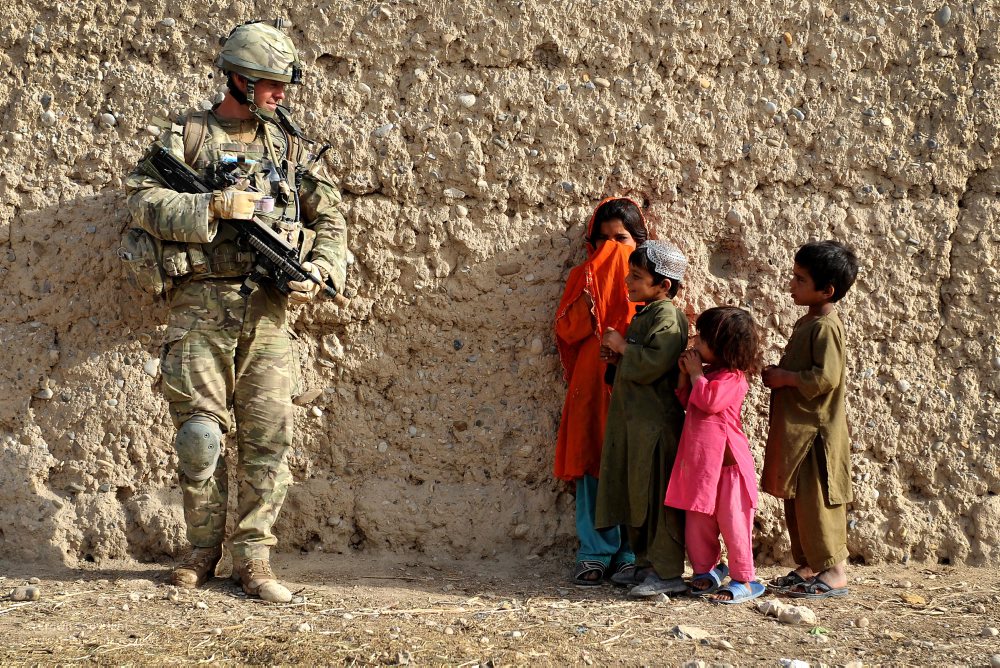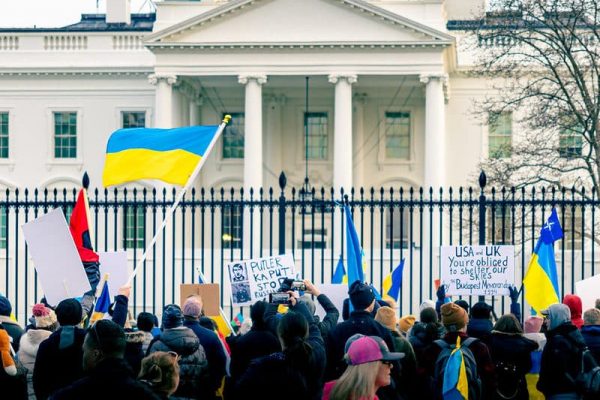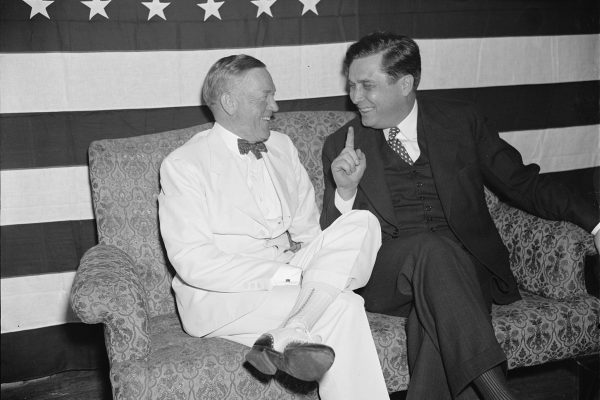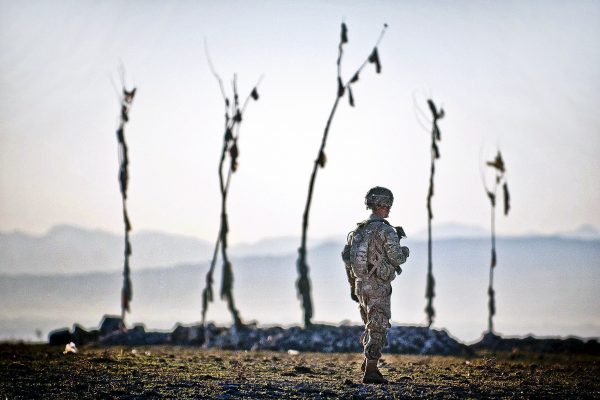“The idea that we’re able to deal with the rights of women around the world by military force is not rational.” This single sentence from President Biden’s ABC interview with George Stephanopoulos on August 18 exposed the paradox of humanitarian intervention. It acknowledged that trying to address violence with violence only serves to perpetuate it. Much commentary on the West’s two decades of intervention in Afghanistan assumes that Western humanitarianism masked political aims or was subordinated to them. But Biden seems to recognize that humanitarianism, far more than politics, justified, legitimized, and, indeed, required violence.
When the imagined violence that provoked mass evacuations as the Taliban entered Kabul on August 15 at first failed to materialize, it was willed into being by rumour and hysteria. The international media tended to every report of violence across the country after largely ignoring the torture, rape, massacres, and other war crimes committed by Western armies and their allies as well as by the Taliban, Al-Qaeda, and ISIS over the past twenty years. The final humanitarian act of the departing coalition, the evacuation of “vulnerable” Afghans, had to be justified by the threat of violence, which eventually came on August 26 with ISIS suicide bombings at the airport.
Even as Biden promises to forsake humanitarian interventions for political interests, he is still drawn back to the scene of cruelty that defines the former. But to abandon humanitarianism for politics is not to sacrifice compassion for calculation. In modern times, after all, politics has become the most important site to claim human freedom and equality. When we subordinate politics to humanitarianism, we inevitably displace the goal of freedom to a future that can only be achieved once the problem of violence has been resolved. This was also the logic of colonialism, whose subjects were perceived as unready for independence because of the cruelties they suffered and inflicted upon one another.
Anti-colonial movements always argued that the violence that caused European empires humanitarian concern emerged from their own interdiction of politics—and freedom—for colonized subjects. Humanitarianism was therefore incapable of addressing violence and inequality. Biden appears to understand that the rigged elections and puppet leaders of the late Islamic Republic of Afghanistan were unable to establish a political arena in which freedom could be exercised—and that the language and logic of humanitarianism allowed this situation to come about and last for so long in defiance of any political objectives.
Whether in Afghanistan or elsewhere, humanitarian interventions, which are rightly meant to be transitional, end up relying on inequality as much as they reproduce it. They are meant to be exceptional precisely because of their anti-democratic character, with relief offered to the needy as a gift rather than a right by those who do not themselves require it. And when these humanitarians happen also to be foreigners, they are even more unaccountable to their charges. In fact, humanitarianism is accountable only upward, to an organization’s donors and stakeholders or a foreign government, instead of downward to its beneficiaries.
These beneficiaries possess neither political equality nor democratic power over their benefactors, however much they are consulted in the apportioning of aid or the launching of development projects. Apart from becoming the docile if sometimes manipulative recipients of humanitarian assistance, therefore, beneficiaries can either choose to be excluded from its gifts or take to violence against them. There is no political relationship between humanitarianism and its beneficiaries, especially when humanitarian agencies support and work with corrupt governments, like the one just unseated in Kabul, to further undermine democracy in the cause of saving more lives.
Unaccountable, unrepresentative, and anti-political, humanitarian interventions are evaluated by internal and economic criteria that include best practice as determined by competitors, value for money as defined by the market, and efficient delivery as measured by budgets and timelines decided without the participation of beneficiaries. Taken together these forms of assessment constitute a neoliberal model of operations whose beneficiaries have no say in what is to be done for them. The result has been not just the displacement of politics by humanitarianism, but, consequently, the latter’s subsumption by economic standards that invariably shift toward profit-making.
The massive corruption characterizing the West’s presence in Afghanistan owed not to the exigencies of war so much as it did to the neoliberal character of the intervention itself, whose humanitarian logic trumped a political one even where military action was concerned. The outsourcing of innumerable tasks once carried out by the army to external contractors, for example, decisively shifted the war from a political to an economic logic. External contractors, after all, are motivated by profit, which determines what efficiency and success look like in their operations. But contracting also permits the United States and allied armed forces to transfer any liability and political responsibility to the private sector.
The result was a Ponzi scheme in which public money was shifted to private companies and consultants to garner the military a larger share of the federal budget at no political cost, despite those killed and wounded. Afghanistan was only a relay in these transfers, with both the funds and the profits repatriated to the West. Interestingly the country’s chief commodity, heroin, plays a similar economic role, the bulk of its profits made in Europe and the United States where its external contractors and customers live.
An economic logic requires no exit strategy, which might explain the twenty years of political and military failure. All this could be tolerated so long as what passed for humanitarian progress in the way of women’s rights, girls’ education, and economic development continued in the ever-shrinking areas under government control.
In Afghanistan we have seen that politics, with its sacrificial logic of freedom, proved more important than humanitarianism’s narrative of improvement. By acknowledging that politics should be a priority, I hope President Biden understands the political arena as one of freedom for Americans as much as Afghans. Economic considerations may delay the emergence or damage the work of politics as a site of human freedom, but they can never fully suppress the idea of accountability. Only a political relationship in which those who command the resources for “nation building” represent and are held responsible by its citizens would have been capable of avoiding the massive corruption that has characterized the coalition’s occupation of Afghanistan. Without it, humanitarian interventions, whether military or monetary, come to tolerate if not justify inequality and violence.








